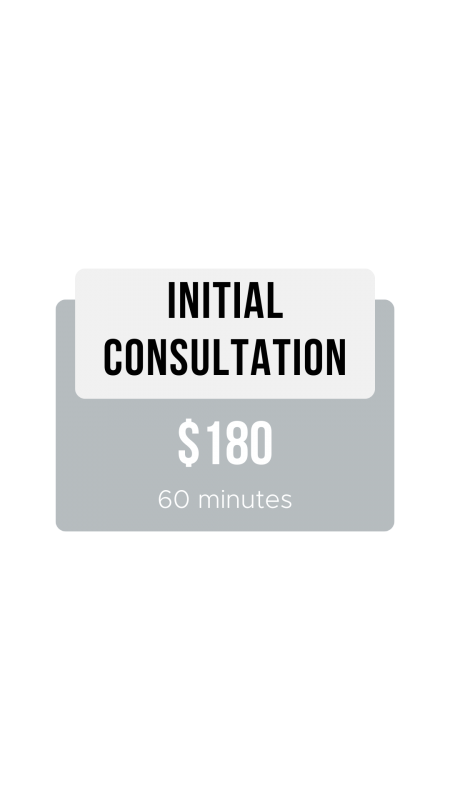All of our consultations are one-on-one with an Accredited Practising Dietitian (APD).
GP referrals are not necessary and we will give you an instant rebate on your consultation provided you bring your private health insurance card along.
GP Management Plans are accepted including Enhanced Primary Care (EPC) plans and Team Care Arrangements (TCA).
Telehealth or in-person appointments are available.

PRICING
Prior to your initial appointment, you will be asked to complete a new intake form to provide relevant information on how best to support you including any nutrition goals you may have.
Your initial consultation will involve a comprehensive assessment of your medical history including pathology results, medications and symptoms, followed by a thorough diet history and discussion of your nutrition and wellbeing goals. Your initial consultation may also involve nutrition counselling and collaboration in developing nutrition-related goals and planning. A plan for follow-up will be determined in your initial visit.
Review appointments aim to check in on your health and are tailored to suit your individual needs. These can involve nutrition counselling, evidence-based nutrition education and skill development.

What can you see a dietitian for?
- Sport nutrition and training for a sporting event.
- Improving your relationship with food.
- Improving your gut health and digestive issues such as IBS, intolerances, allergy, bloating, abdominal pain, nausea, vomiting etc.
- High cholesterol and high blood sugar.
- Eating to support your mental health and eating disorders.
- Healthy eating advice and cooking/shopping education.
- Chronic health conditions such as liver disease, kidney disease, arthritis, inflammatory conditions, endometriosis and cancer.
- Eating/feeding concerns in children.
- Support managing texture modified diets.
- Managing symptoms from medications
What is the difference between a dietitian and a nutritionist?
Whilst they are similar professions, there are differences in qualifications and regulations. A dietitian utilises the science of food and health to provide medical nutrition therapy to help prevent and treat disease whilst optimising health and wellbeing.
All Accredited Practising Dietitians (APD) have studied for a minimum of 4 years and have completed an accredited dietetics degree.
Nutritionists offer general nutrition and dietary advice to improve health and wellbeing. In Australia, nutritionists are not certified under a single regulatory body, hence, qualifications can greatly vary.
Accredited Practising Dietitians (APD) are the only professionals recognised by Medicare to provide medical nutrition therapy. Medical nutrition therapy utilises evidence-based nutrition science to help prevent and treat disease whilst optimising health and wellbeing.




